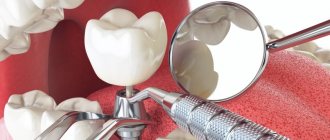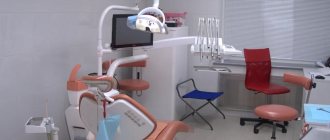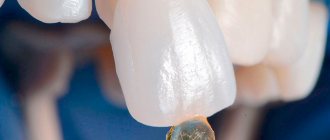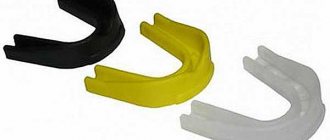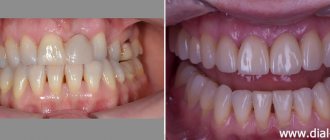Are you ready to save on your health with such a serious procedure as dental implantation? Do you care how professionally the dentist handles the treatment? Does it matter that they will deceive you at the clinic and scam you out of money? Of course, every reasonable person will answer “No”!
To avoid becoming a victim of fraudulent schemes when installing dental implants, it is important:
- know how people fall for “cheap” dental procedures;
- what steps to take if it becomes clear that the dental clinic is confusing you when providing information;
- understand what the dental implantation procedure is, what, and in what order you need to pay when it is performed.
Is implantation an expensive procedure?
The cost of dental implantation depends on the following factors:
- Category of dentistry. In large clinics with a large number of patients, competition remains, and therefore services can be provided at more affordable prices compared to small centers.
- Doctor's professionalism. Training in advanced training courses and specialized seminars costs a lot, so the services of an experienced person are not cheap. The cost of treatment is also related to whether the clinic has all the permits. Receiving and updating them entails monetary costs.
- Method of implantation used: traditional 2-stage;
- express technology;
- basal;
- mini-implantation;
- laser
In addition to the implant itself and the superstructure, it is necessary to pay for diagnostics, multiple surgical interventions and various consumables.
Placing an implant does not mean getting a ready-made tooth
Nowadays you can go to almost any dentistry for an implant, but few places will immediately tell you the real price. It also happens that for a promotion they promise you one amount, but based on the results of treatment - a completely different one. How much does high-quality and reliable implantation really cost?
Artur Avetisyan, dental surgeon at the Krasnoyarsk clinic “Astrea”
As Artur Avetisyan, a dental surgeon at the Krasnoyarsk Astrea clinic, explains, by organizing promotions and promising implantation at a low price, clinics often take advantage of patients’ ignorance. It turns out that installing an implant and getting a completely restored tooth are not the same thing. In fact, an implant is just a foundation for a future tooth, implanted into bone tissue. The quote on the sign may tell you the price of the implant itself, but the entire treatment involves several costly and time-consuming steps.
What is the reason for the high cost of dental implants?
Today there are over 300 companies offering dental implants on the market. Materials, research labor, and manufacturing involve significant costs, so implants simply cannot be cheap. When producing implant systems, the following main characteristics are taken into account:
- Material. In most cases, the production of artificial roots is made from titanium alloy Ti-6Al-4V, which contains some vanadium and aluminum. These components make the material more durable, but reduce the rate of fusion of the implant with the jaw bone. In the manufacture of premium implants, pure titanium G4Ti is used, which contains no additional elements. In addition, materials for manufacturing can be an alloy of titanium and zirconium dioxide, as well as metal-free ceramics. Ceramic products are an excellent alternative to metal rods for patients with mucous membrane problems or allergies to metal.
- Surface features. The rate of osseointegration of the implant depends on the type of surface. During the initial surface treatment, the product is turned with alumina or titanium oxide and etched with acid. We are talking about the so-called SLA technique, the use of which makes the surface porous and rough. After this stage, special chemical compounds (fluoride ions, calcium phosphate and phosphorus) are applied to the surface to reduce the duration of bone tissue synthesis.
- Thread options and implant shape. The interaction of a particular implant model with the jawbone depends on many factors. There are several types of bone - D1, D2, D3 and D4. D1 is considered the densest, and D4 is considered the softest. High density bone guarantees high primary stability, but osseointegration in this case takes a long time due to the minimal number of blood vessels. The softest bone is not the best option for installing an implant. The most suitable bones are types D2, D3.
The presence of dense bone indicates the need for conical and cylindrical implants. Excessively coarse threads should not be used, as this will create increased stress, which can provoke atrophy. It is desirable that there be a microthread in the area of the rod neck, and a moderately pronounced thread at the bottom of the element. When working with soft bones, conical products with self-tapping threads are used.
The choice of dental system is carried out taking into account the size of the alveolar process of the jaw and its density. You also need to take into account the area of implantation and the method of prosthetics.
Will the implant need to be replaced some time after the surgery?
Typically, the need to replace implants arises only when any complications arise—an active inflammatory process in the area of implantation of the artificial root, or implant rejection. Failure of implants due to stress or for other reasons is an extremely rare occurrence and almost never occurs in the practice of implantologists.
When might complications arise that require implant replacement? The inflammatory process in the area of implantation of the artificial root can appear both immediately after the operation and 10, 15, 20 years after the operation. In the first case, the cause of complications is most often one: medical errors. You can reduce your risk of implant rejection due to medical errors by choosing the right clinic and implantologist. It is important that the clinic has all the necessary equipment to conduct high-quality diagnostics before dental implantation, and that your attending physician is a competent specialist in his field, having not only the necessary knowledge base, but also practical experience in dental implantation.
IMPORTANT: The advertisements of many clinics say that they have the best conditions for treatment and use the most modern equipment; the country's leading implantologists work. Check these advertising promises with a personal visit to the clinic, because often they remain just beautiful words. A good clinic should really have high-quality diagnostic equipment installed, it should have its own implantologist on staff, and not an invited specialist from outside, and naturally, the doctor’s qualifications should be documented!
If implant rejection occurs several years after their installation, the cause of the complication is the patient’s careless attitude towards his health and poor oral hygiene. Many people think that neither dentures nor dental implants require maintenance, since they are all artificial structures that cannot be destroyed by caries. Therefore, they do not brush their teeth regularly, do not undergo professional teeth cleaning at the dentist and preventive examinations in the clinic. But plaque accumulates not only on natural teeth, it will accumulate on the gums, and pathogenic bacteria will actively multiply on the surfaces of the dentures and in it. These bacteria can provoke the onset of an inflammatory process in the area where implants are installed - peri-implantitis and even rejection of the dental implant. Therefore, after implantation and prosthetics, you should never forget about careful and regular oral hygiene!
Also, the need to replace the implant may arise due to jaw injuries, which result in implant mobility. If you feel that the implant has begun to wobble and see that the gums in the area where it is installed are swollen and red, consult a doctor immediately.
Differences between budget and expensive implants
Conventionally, all dental structures belong to three main groups:
- Premium systems from well-known manufacturers. Such companies invest a lot of money in research, experiments, new developments, and not just in the manufacture of suprastructures and rods. They develop training programs for doctors and constantly modernize production methods. All this affects the cost of finished products and this is not surprising. This group includes products from Astra Tech (Sweden), Nobel Biocare and Straumann (Switzerland), as well as XiVe Friadent (Germany).
- Middle price segment. This category contains manufacturers who do not develop this industry, but only copy the methods of companies from the premium segment. Some samples are not the best, since it is not always possible to completely copy the original. However, there are products that, if installed correctly, can be used for a very long time. Here we can mention the products of MIS and Alpha Bio (Israel), Ankylos (Germany) and Bicon (USA).
- Products with limited functionality. Systems in this group are produced by small budget companies. We are talking about Russian, Ukrainian and Belarusian manufacturers of dental structures.
What affects the final cost?
The final cost of implantation is determined taking into account the costs at different stages of work:
- Preparation - consultations with experts, obtaining tests and sanitation of the oral cavity.
- Diagnostics: performing an orthopantomogram, CT scan.
- In case of insufficient bone tissue volume, sinus lifting, directed regeneration or bone block grafting is performed.
- Surgical intervention. The specialist prepares the bone bed, installs the implant and places sutures on the mucosa.
- Installation of a gum former (after a few months). The specialist cuts the mucous membrane, dismantles the temporary element and installs the former.
- After the formation of the cushion from the gum tissue (after 14-21 days), the doctor removes the former and installs an abutment in its place.
- Prosthetics - a specialist takes impressions of each jaw, which are necessary for the manufacture of artificial crowns.
- Trying on the structure in the oral cavity, followed by correction and final fixation.
- Recovery period. The patient periodically visits the doctor to check the functionality of the implant and monitor the condition of the tissues.
Place an implant on a chewing tooth: features and advantages
If you need to restore a chewing tooth, you will most likely be recommended to get an implant. Why? The answer is simple - because implantation will provide the opportunity to obtain the most reliable and durable result of the restoration of a chewing tooth and, in addition, it will not require preliminary grinding of neighboring, healthy teeth.
IMPORTANT: In classical prosthetics, before installing a prosthesis or crown, a procedure is carried out to grind the teeth that act as a support for strong fixation of the orthopedic structure. This procedure cannot be called useful in any way, since it weakens the teeth, making them more vulnerable to the action of bacteria and negative external factors. Implantation does not require grinding of teeth.
Restoring chewing teeth with implantation provides the following advantages:
- The correct bite is maintained and the functionality of the dentition is restored 100%;
- Implantation of implants makes it possible to completely stop the process of bone tissue atrophy;
- By deciding to place an implant on a chewing tooth, you will receive not only a durable, but also an aesthetic restoration result. Visually, the crown on an implant cannot be distinguished from a natural tooth;
- Implants do not require complex and specific care and have a long useful life - 15 years or more;
- Implants will allow you to eat any food and will not cause any discomfort during use.
The correct approach to restoring chewing teeth with implantation involves choosing the right implants. Of particular importance will be the strength of the implants that are planned to be installed, because when chewing food, our jaws create a load of thirty to forty kilograms and the artificial root must withstand it! Short implants of small diameter are not used for the restoration of chewing teeth. The size and diameter of the implants are selected individually for the patient.
To assess the condition of the jaw bone and study its anatomical features before implantation, a computed tomographic examination is performed, and photographs of the jaws are taken in different projections.
IMPORTANT: If you are planning to undergo dental implantation, ask your doctor how your diagnosis will be carried out. If you are not offered to undergo general tests or have a CT scan, it is better to refuse dental implantation in such a clinic!
Possible savings during treatment
The experience of the dentist and the quality of the materials used are directly related to prices at the chosen medical institution. You can save money in the following ways:
- Registration of an insurance policy. Some clinics offer special discounts to people whose treatment is covered by health insurance programs.
- Simultaneous installation of dentures on several teeth. Thanks to this, you will not have to spend extra money on painkillers, impressions and x-rays.
- Refusal to install a temporary crown when installing an implant in the chewing area.
Advantages of two-stage implantation
- long service life of implants;
- high survival rate;
- the possibility of restoring the dentition in cases where one-stage implantation is impossible - with insufficient bone width, inflammatory processes, and some structural changes in bone tissue.
Two-stage dental implantation places fewer demands on the condition of the dental system. Many difficulties can be successfully solved by effective preparation - a preliminary course of treatment for inflammatory periodontal diseases, increasing bone volume, raising the bottom of the maxillary sinuses using sinus lift surgery. There are fewer contraindications to the classical method of implantation, but they do exist.
Refund of part of the money spent on prosthetics
In March 2001, the Government of the Russian Federation issued Decree No. 201, which approved a list of costly types of treatment. One of the points on this list states that dental implantation is an expensive type of treatment. When drawing up a document on payment for medical services, which will be submitted to the tax office, the dentist indicates a code that classifies the treatment as cheap, and “2” as expensive. For implantation, code “2” is used. However, the list does not mention prosthetics on implants.
Tax deduction - in what cases and how much money can be returned
The tax deduction provides taxpayer patients with the opportunity to receive compensation in the amount of 13% of the cost of treatment. This possibility is provided by two documents:
- Article No. 219 of the Russian Tax Code, according to which all taxpayers have the right to receive an annual 13 percent compensation of the amount that was spent on treatment in various domestic medical institutions.
- Decree of the Russian Government No. 201 of March 19, 2001, which specifies the process for obtaining a tax deduction and a list of specific medical services, the cost of which can be compensated.
A percentage of the funds spent is accrued for the following types of services:
- medical procedures that were provided to the taxpayer or his spouse, minor children, parents;
- paid insurance premiums in accordance with the health insurance agreement;
- medications that were prescribed by the treating specialist.
The determination of the tax deduction is based on the total amount of expenses and cannot be more than 120 thousand rubles throughout the year. If a taxpayer intends to receive compensation for paying for the treatment of immediate relatives, he can only count on 50 thousand rubles.
Why is it important to undergo dental implantation in a clinic that provides guarantees for treatment?
The availability of a guarantee for the services provided is the first thing you should ask about when talking with the administrators of the dental clinic. If there is no such guarantee, it is best to refuse treatment in this particular dentistry, because according to statistics, in 90% of cases, implants are rejected not through the fault of the patients, but due to medical errors. Without a guarantee, you will not be able to count on free re-implantation and replacement of the implant, and moreover, you will not be able to prove your case in court.
Having a guarantee for implantation is the key to receiving a quality service. A clinic that values its reputation and the trust of its patients will definitely offer you a written agreement that will clearly and clearly state the warranty obligations.
Also, to be sure that you will receive quality service in a particular clinic, always find out:
Doctor's qualification level. His experience, knowledge, and practical skills must be documented - diplomas, certificates. Look for information about the specialist on the Internet; there are many sites on which patients write reviews about doctors; it is also worth reading the book of reviews and suggestions in the clinic itself. A very important point - the implantologist in the clinic should not be a visiting specialist! You must be sure that if any complications arise, you will see an implantologist immediately;
Level of equipment of the clinic. Implantation is a serious type of surgical intervention that requires careful preparation for the operation and its preliminary planning. Therefore, the clinic must have appropriate modern equipment for diagnostics and all necessary manipulations during surgery.
Choose several clinics and visit consultations with specialists in them. Ask all the questions about dental implantation that interest you and, first of all, ask whether there have been cases of implant rejection in the doctor’s practice and what actions he took when this problem arose in patients. Pay attention to how the doctor will react and answer your questions: an experienced implantologist who respects his patients will understand your desire to learn as much information as possible about the upcoming operation.
And finally, one more important tip. Many people want to get dental implants and choose a clinic based on the price of the service. This is wrong and even dangerous. Low prices for the service may indicate the use of low-quality Chinese implants, that the clinic employs inexperienced doctors, and such savings will be more than doubtful, because it is accompanied by high risks for your health!
Collection and provision of documents
List of documents that need to be collected:
- an application addressed to the head of the relevant tax authority to receive a tax deduction;
- a certificate of the appropriate sample indicating the code of the medical service from the institution where the treatment was performed;
- an application to transfer money to the applicant’s personal bank account;
- a copy of the medical institution’s license to provide certain services;
- a copy of the agreement between the taxpayer or his relative with a medical institution, which contains a detailed list and cost of all services provided;
- cash receipt, which is proof of payment for services;
- a copy of the tax registration document;
- certificate 2 personal income tax from the place of work;
- copy of the passport;
- declaration of the Z-NDFL format;
- if the patient is one of the applicant’s family members, it is necessary to provide a copy of the marriage or birth certificate of the child to confirm the presence of family ties.
The entire set of documents is submitted to the tax authority in accordance with the taxpayer’s place of registration.
